Teachers: Here’s How to Use Summer Vacation to Recharge Your Mental Health
No one knows “tired” like teachers at the end of the school year. Summer vacation is a necessary part of the profession, and you deserve to enjoy every minute of it.
But if you’re like many teachers, then summer break never feels long enough. The first day of school comes around too soon, and you’re back to the hustle before you’ve fully rested. And teachers are more stressed than ever, with over 90% of teachers reporting that burnout is a serious problem in the profession.
Summer vacation is an important time to stop and reflect on what you need. This summer vacation, use your time intentionally to rest, recharge, and take care of your mental health.
Why do teachers need the summers off?
We tend to be aware of how important it is for our students to take breaks. We inherently understand that children can’t work all year long; they need and deserve time to play, relax, and take care of themselves.
The same goes for teachers. Summer breaks are just as important (if not more so) for educators as they are for the students they teach.
Every adult needs breaks, but teaching is a unique profession – and one of the most stressful in the world. Summer is an essential time to recharge and reflect on the past year. These breaks aren’t a luxury – they’re a necessity in the teaching profession.
Some of the biggest reasons why summer vacation is so important for teachers and other school professionals are:
- They give you time to slow down and reflect on your career
- You are able to take better care of your physical and mental health
- They allow you to take a true break after an academic year of constantly being “on” for your students
- They give you time to discover new hobbies
- They allow you to learn more about yourself and your needs
- You can catch up on rest
- They’re essential for helping you return to your classroom recharged and energized
To be clear, summer vacations aren’t a replacement for protecting teacher mental health year-round. We still need to do a lot better to take care of our teachers’ physical and mental well-being.
But it’s important to remember that summer break is a necessary part of your job, and to examine how you can use this time in order to be at your best self for your students.
How can teachers recharge over the summer?
No matter how much time you have off this summer, it’s important to use it in an intentional way. It’s so easy to get sucked into activities for others’ sake – your kids, your spouse, and so on. But what about you? What is it that you need this summer? How can you use this time to rest and reset your mental health?
Even if you’re teaching summer school (or have to take on another job) during the summer to make financial ends meet, there are ways to use this time to rest and reflect.
Here are some self-care activities to put on your to-do list this summer.
Rest in any way you can
One of the most important ways you can use this time is to simply rest. Many teachers feel pressured to be productive during the summer, whether it’s because of financial concerns or simply an internal drive to achieve. But resting is one of the best things you can do for your overall work performance and productivity. It’s also one of the best things you can do for your students.
Rest can mean different things for different people. Some people may simply need to make sure they’re getting enough literal rest at night – 7 to 9 hours of restful sleep. But resting could also mean resting mentally; allowing your mind to rest from constantly worrying about your students. Rest could mean enjoying activities that make you feel at ease.
Whatever rest means to you, get plenty of it while you can during summer.
Keep strong boundaries
Another thing you can do to recharge your mind over summer break is to build and keep strong boundaries between your work and the rest of your life. Of course, teaching is different from most other professions in that it may be challenging to “leave work at work” all the time. It’s natural to think and worry about your students even when you aren’t with them.
But, as much as possible, create boundaries. Allow your work cell to run out of battery. Don’t spend all your time planning curriculum and policy changes for the next school year. Remember who you are outside of being a teacher.
If you’re teaching summer school, then it may be harder to do this for obvious reasons. But you can still have some boundaries; for example, you might say “no” to additional responsibilities or refuse to check your email after working hours.
Get outside
Summer break is usually a great time to spend time outdoors. Research shows that spending time in nature can help ward off effects of stress, depression, and anxiety. If you’re going on a trip this summer, consider incorporating some nature time – like a weekend camping.
Even if you live in a big city, you probably have some green space within city limits. You don’t need to go on a camping trip to reap the benefits of nature (although, if you can, that’s wonderful!). Even having a picnic under the trees at the local park will do.
If it’s possible, try combining your nature time with physical exercise – you could go for a hike, play with your kids outside, or take your dog on a walk in the woods. Exercise is another evidence-based way to care for your physical and mental health.
Set up a regular mindfulness practice
Lastly, mindfulness is a science-backed way to reduce stress and anxiety, become more aware of your emotions, improve your relationships, and more. And you don’t need to go to a retreat or meditate for hours a day to benefit from mindfulness. You can practice mindfulness any time, anywhere – it’s just about learning how to be present in each moment. There are many easy ways to incorporate mindfulness into your day.
Best of all, mindfulness is like any skill. When you practice it, it becomes easier and more natural over time. By starting a regular mindfulness practice during your summer break, you will have stronger skills during the school year to handle the curveballs that you encounter in your classroom.
Calm Classroom isn’t just for students – many teachers use our activities at home, as well. And well over 80% of our teachers report feeling more relaxed and less stressed after using our program.





SIGN UP FOR OUR NEWSLETTER